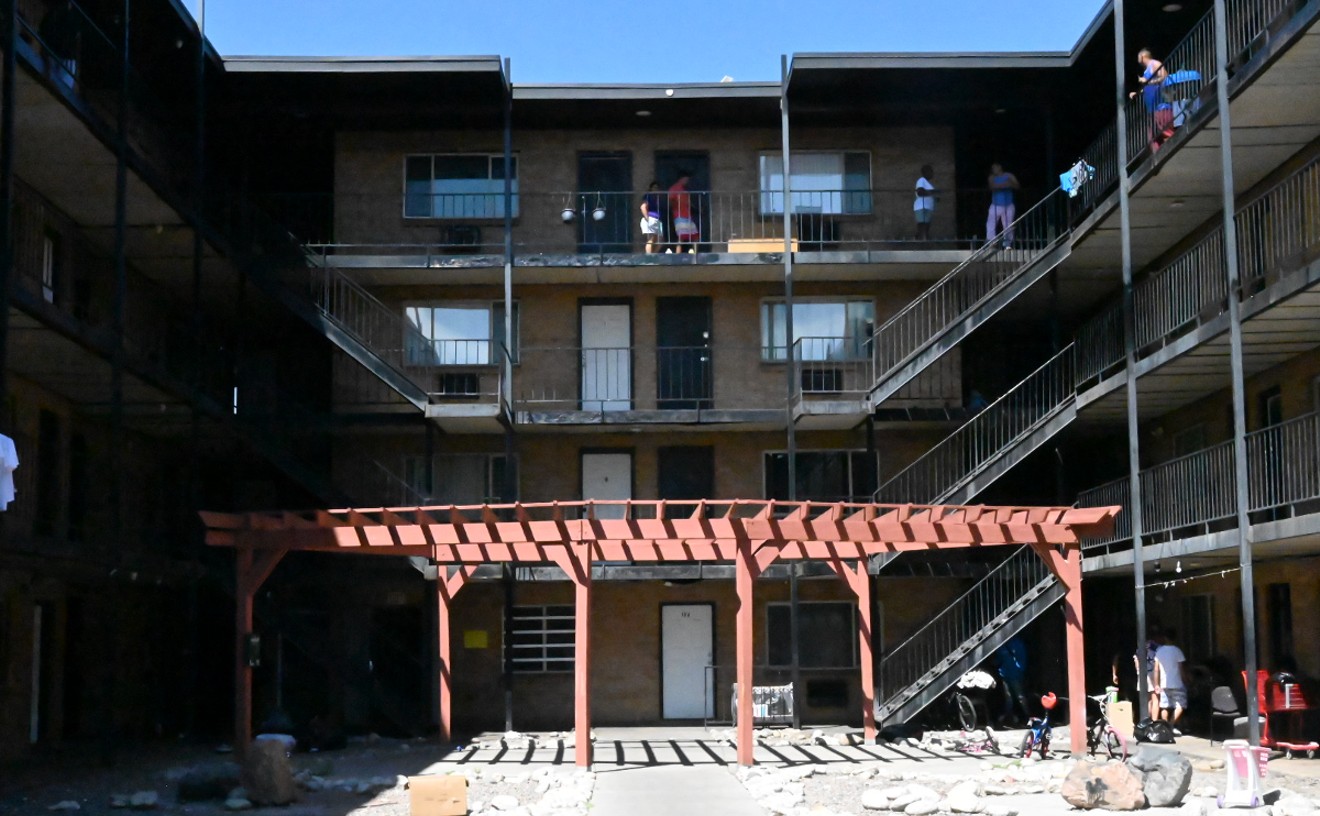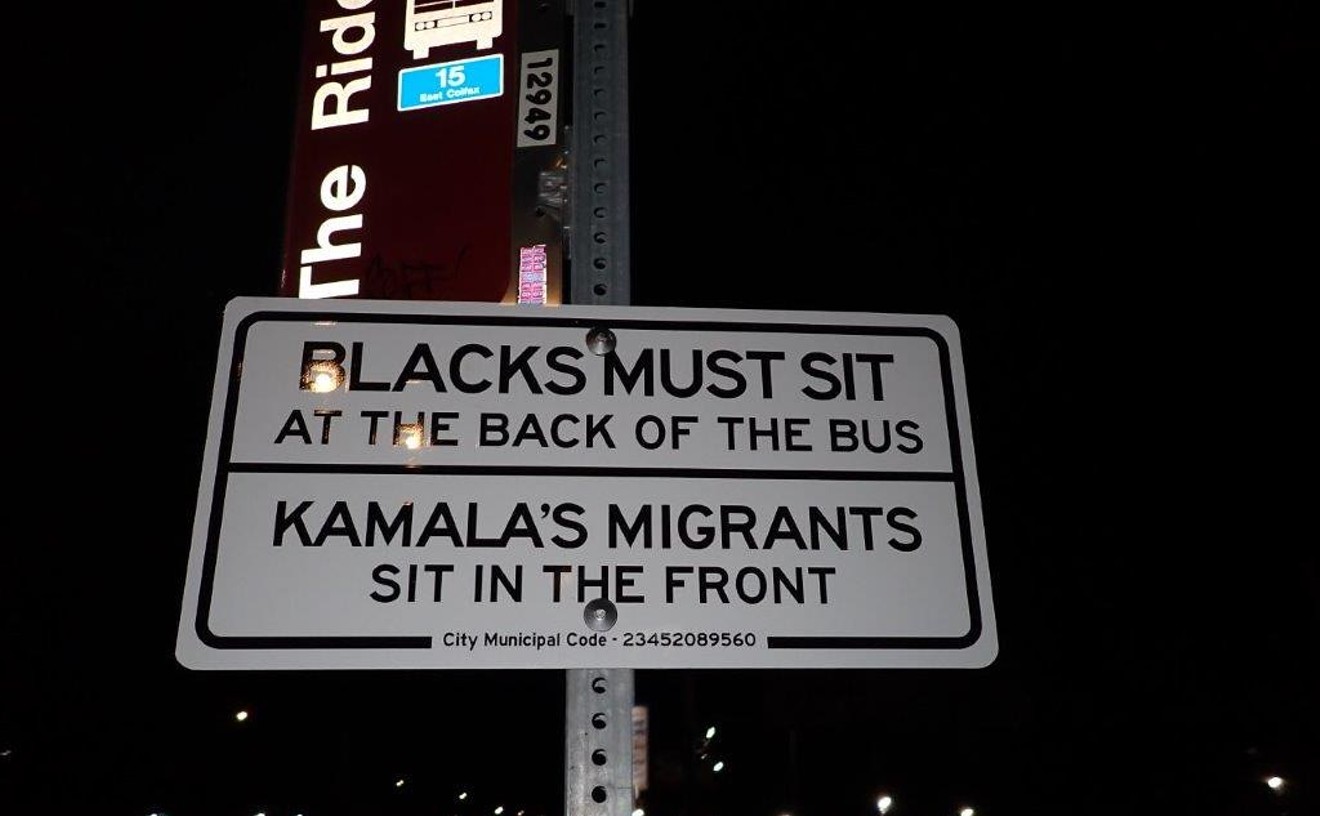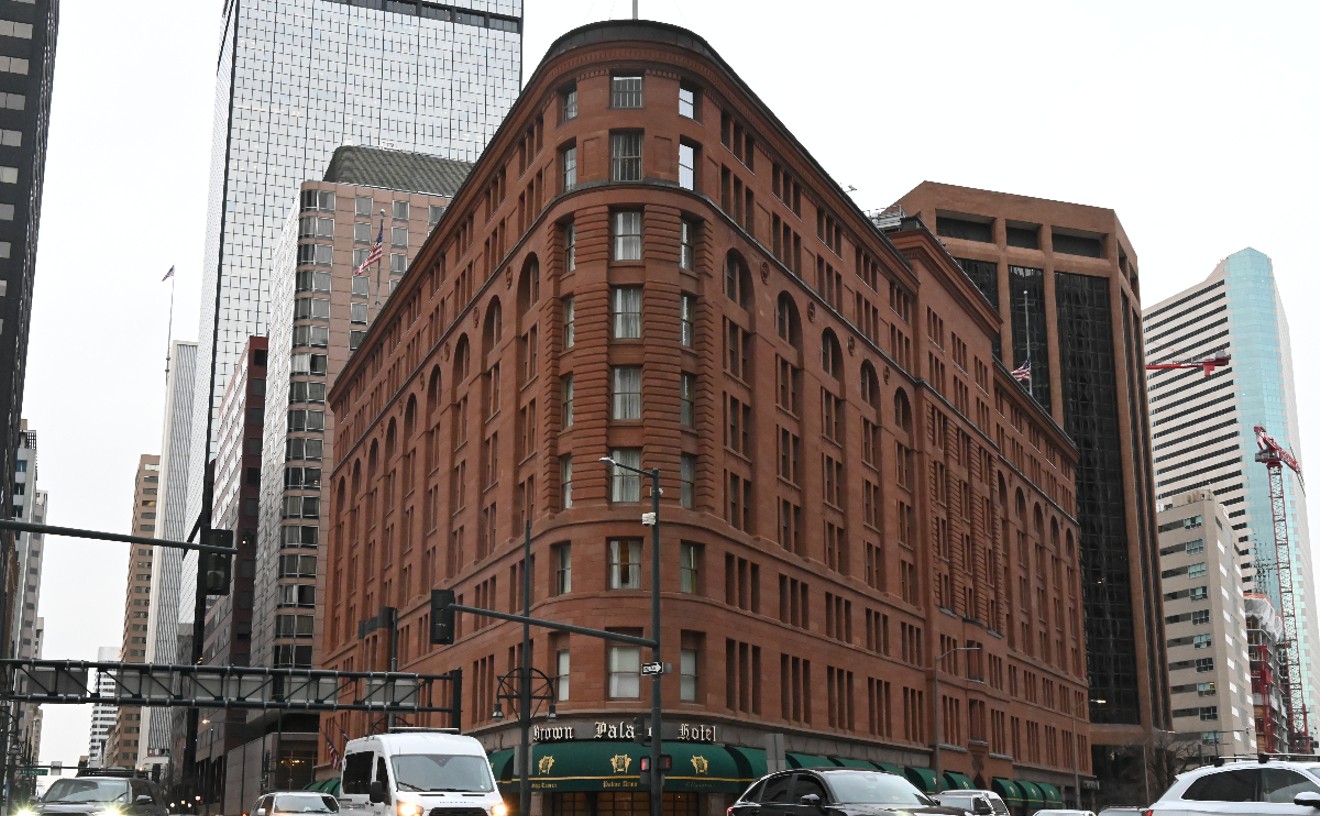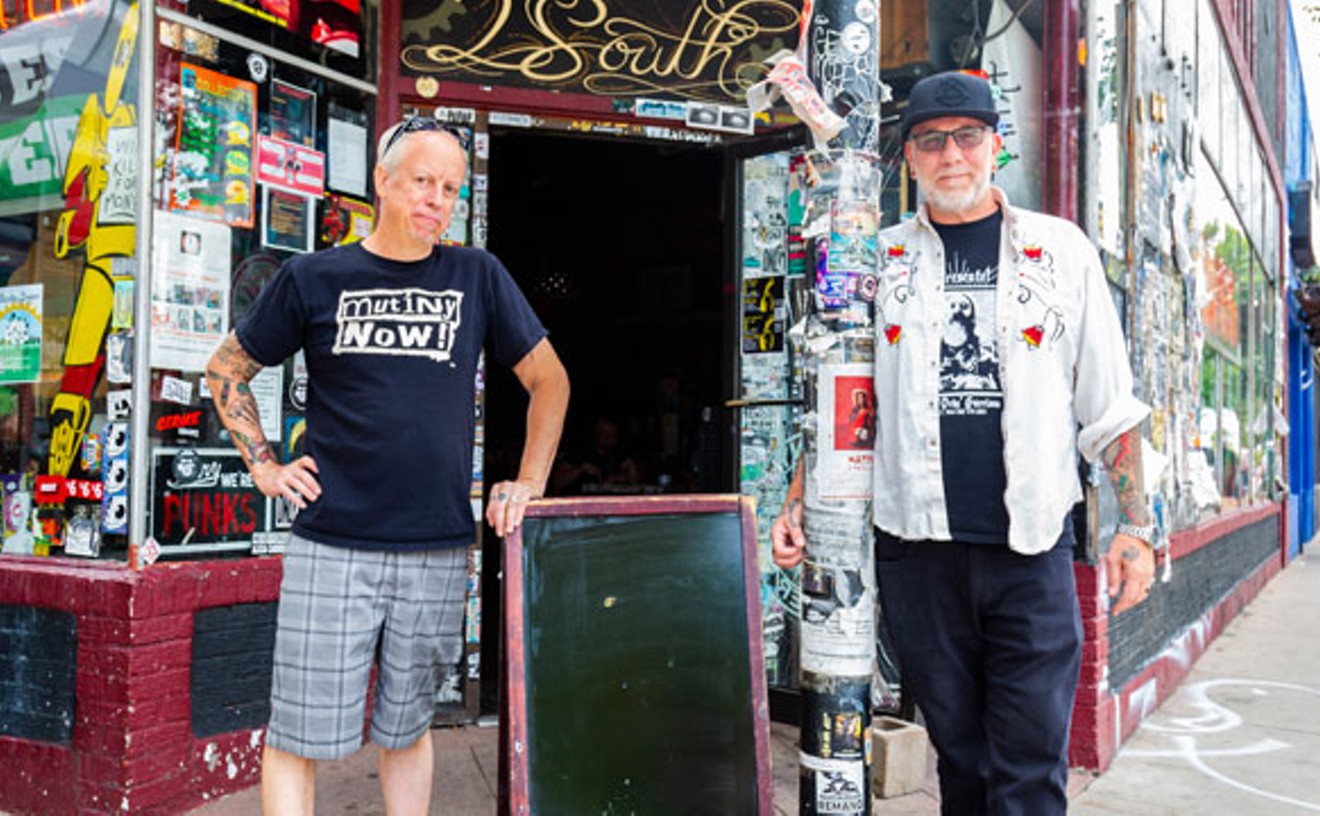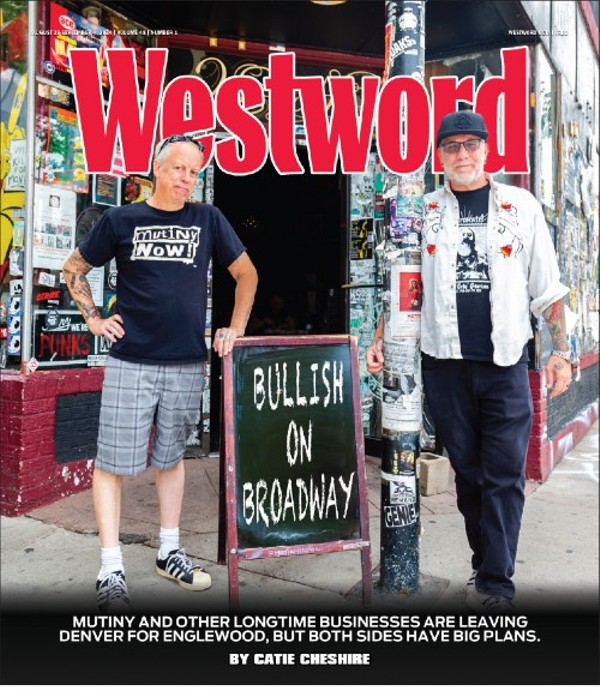Earlier this week, we reported about a letter written by three state legislators in which they asked Arizonans for Responsible Drug Policy, an organization opposing a measure there that would legalize limited recreational marijuana sales, to stop airing a commercial filled with alleged falsehoods about Colorado's cannabis experience. The dubious information was shared in the spot by two former Colorado officials, ex-governor Bill Owens and onetime Denver mayor Wellington Webb.
In that post, we also noted that outgoing Denver District Attorney Mitch Morrissey had sent a letter to the No on 64 Campaign and SAM Action, organizations fighting against a similar recreational-marijuana-legalization measure up for vote in Colorado; its name, Proposition 64, echoes Colorado's Amendment 64, passed in 2012. In the missive, on view below in its entirety, Morrissey writes that crime has gone up in the state since Amendment 64's passage and law enforcers are busier than ever trying to deal with the measure's repercussions.
Morrissey has received criticism from cannabis-reform advocates for implying that marijuana was responsible for the crime-rate increase. (One source of the data used by Morrissey was drawn from "Denver Crime Rises in 7 of 9 Categories, Homicide Up 72.4 Percent," a Westword post published in January.) In conversation, Morrissey stresses that he wasn't attempting to establish a causal relationship between the crime uptick and pot, even though he believes marijuana legalization has been a factor in the resulting rise in offenses. And when he's asked to name positives and negatives that have come to pass in Colorado since Amendment 64 became law, he says, "I'm not the person to talk to about positives. I don't really go into the areas of how much money it's generating. Pretty much all I can supply in my area of expertise so far are negatives."
In 2012, Morrissey was among the opponents of Colorado's own recreational-marijuana-legalization measure, but he says his efforts were limited. "When I spoke on it from the steps of the Capitol, the only statement I made was that it had no business in the Colorado constitution. And that's why I was against it — because being in the constitution makes it so much harder to go in and fix. An example that's not even mentioned in the letter are the folks who make hash oil and blow places up. It's like, 'Okay, can you do this under this amendment, or can't you? And if you can, how can we stop them?'"
According to Morrissey, the No on 64 Campaign reps who'd requested that he write a letter "asked me to address two specific questions. They said California voters are being told the crime rate will go down and that the police will be freed up to work on other criminal activity if this passes, and they wanted to know if that had been the case in Colorado. And the answer to both of those questions is no."
The Colorado statistics quoted in the controversial Arizona commercial were largely drawn from data compiled by the Rocky Mountain High Intensity Drug Trafficking Area, a federally funded group that admits the anti-pot reports it's been churning out in recent years aren't scientific. In contrast, Morrissey stresses that "the statistics I used are real. They're the same statistics that you reported, that the Post reported, that the CBI reported. They're real statistics — and the important thing to realize when you're talking about statistics is that when there's an increase in homicides, these are real people getting killed."
Had Morrissey been asked to opine about whether marijuana legalization was responsible for the crime increase, his answer would have been "more complex," he says. "I don't have those statistics. But when you look at it, there are certainly people in your business attributing problems on the 16th Street Mall to people coming into Denver because of the legalization of recreational marijuana. There's a major difference between medical marijuana and recreational marijuana: Medical marijuana was only available to Colorado residents, but recreational marijuana is available to non-residents. And then I see the media showing video of some guy hitting people on the mall with a pipe — who we charged — and I see the stressors we're putting on our homeless shelters by young people coming here because of marijuana, and the increase in assaults, thefts and public-nuisance crimes."
Morrissey acknowledges that "my office doesn't prosecute a lot of these more minor crimes, like urinating in public. That's the city attorney's office — so it's hard for me to get a grasp on those statistics. But it's certainly been reported that some of the problems on the mall can be connected to marijuana. And if there's a pot-related homicide, as when people come here and get into a shootout in Park Hill and there are three people killed [during an alleged drug deal], that's an increase in the homicide rate. And when you have boys hopping a fence to steal pot plants and one gets killed and the other gets paralyzed, that's an increase in the homicide rate, too. And in those cases, there's a direct relationship between them and marijuana."
As for whether law enforcement has more time to devote to serious crimes because they no longer need to go after low-level marijuana offenders, Morrissey maintains that the verdict is in. "The marijuana enforcement team with the Denver Police Department, the crime lab and what they're testing when it comes to pot enforcement, they're busier now than they've ever been in the history of Denver. And the homicide bureau and other bureaus are busier, too."
After writing the letter last month, Morrissey says he didn't give it much further thought. "I had no idea how they were going to use it or that it would go viral, which it appears to have done. Had that been the case, I would have paid a little more attention to the typographical errors. [We've cleaned up the text of the letter and also included an image of the original.] But I sent them what I believe to be the facts. And whenever you contemplate a change in public policy like California is, you need to weigh the pros and cons in order to make an intelligent decision."
Which is why Morrissey supplied the cons. Here are two versions of his letter.
Mitch Morrissey letter in opposition to Proposition 64
October 12, 2016
No on 64 Campaign and SAM Action
California voters are being told that they will see the crime rate go down if they vote to legalize marijuana commercially; this has not been the case in the State of Colorado or the City of Denver. Since the legalization of recreational marijuana in Colorado in 2013 traffic related marijuana deaths have increased 48 percent, marijuana related emergency room visits have increased 49 percent and marijuana related calls to the poison center have increased 100 percent. According to the Colorado Bureau of Investigations in 2015 statewide homicides in Colorado rose 14.7 percent over the previous year. Pueblo, Colorado had the highest homicide rate in the state with 11.1 killings per 100,000 residents. Aurora, Colorado's homicide rate more than doubled from 2014. Additionally more places in Colorado were robbed and more thefts occurred, specially cars, as 193,155 motor vehicles were reported stolen, up 27.7 percent in 2015 from the previous year. In 2015, sexual assaults rose 10 percent in Colorado with Denver, Aurora, Lakewood, Westminster and Pueblo all reporting higher numbers as well.
In the City of Denver since the legalization of recreational marijuana the number of crimes in Denver has grown by about 44 percent according to annual figures the city reported to the National Incident Based Reporting System. In 2015 in Denver alone crime rose in every neighborhood in the city. The murder rate hit a decade high, 1,059 more cars were broken into, there were 903 more auto thefts, 321 more aggravated assaults and 231 more homes were broken into compared to 2014.
California voters are also being told that legalizing recreational marijuana will free up law enforcement to work on other criminal activities. Again that has not been the case in Denver. Besides the overall increases in crime we have experience [sic], the Denver Police Department is dealing with a 900 percent increase in the unlawful cultivation and manufacture of marihuana [sic] concentrate, and a 99 percent increase in the unlawful distribution of marijuana dn marijuana concentrate. The quantity of illegal marijuana seized by the Denver police has increased 3,424 percent on average per case. The volume of marijuana seized per case has increased from an average of 162 pounds to 5,724 pounds. In Denver unlawful public consumption of marijuana citations has increased over 300 percent per year since the legalization of recreational marijuana. The Denver Police Department is busier enforcing marijuana laws and investigating crimes directly related to marijuana, including murderers, robberies and home invasions, than any other time in the history of the city.
Sincerely,
Mitchell R. Morrissey
Denver District Attorney

Audio By Carbonatix
[
{
"name": "Air - MediumRectangle - Inline Content - Mobile Display Size",
"component": "12017618",
"insertPoint": "2",
"requiredCountToDisplay": "2",
"watchElement": ".fdn-content-body",
"astAdList": [
{
"adType": "rectangle",
"displayTargets": "mobile"
}
]
},{
"name": "Editor Picks",
"component": "17242653",
"insertPoint": "4",
"requiredCountToDisplay": "1",
"watchElement": ".fdn-content-body",
"astAdList": [
{
"adType": "rectangle",
"displayTargets": "desktop|tablet"
},{
"adType": "rectangle",
"displayTargets": "desktop|tablet|mobile"
}
]
},{
"name": "Inline Links",
"component": "18838239",
"insertPoint": "8th",
"startingPoint": 8,
"requiredCountToDisplay": "7",
"maxInsertions": 25
},{
"name": "Air - MediumRectangle - Combo - Inline Content",
"component": "17261320",
"insertPoint": "8th",
"startingPoint": 8,
"requiredCountToDisplay": "7",
"maxInsertions": 25,
"watchElement": ".fdn-content-body",
"astAdList": [
{
"adType": "rectangle",
"displayTargets": "desktop|tablet"
},{
"adType": "rectangle",
"displayTargets": "desktop|tablet|mobile"
}
]
},{
"name": "Inline Links",
"component": "18838239",
"insertPoint": "8th",
"startingPoint": 12,
"requiredCountToDisplay": "11",
"maxInsertions": 25
},{
"name": "Air - Leaderboard Tower - Combo - Inline Content",
"component": "17261321",
"insertPoint": "8th",
"startingPoint": 12,
"requiredCountToDisplay": "11",
"maxInsertions": 25,
"watchElement": ".fdn-content-body",
"astAdList": [
{
"adType": "leaderboardInlineContent",
"displayTargets": "desktop|tablet"
},{
"adType": "tower",
"displayTargets": "mobile"
}
]
}
]





